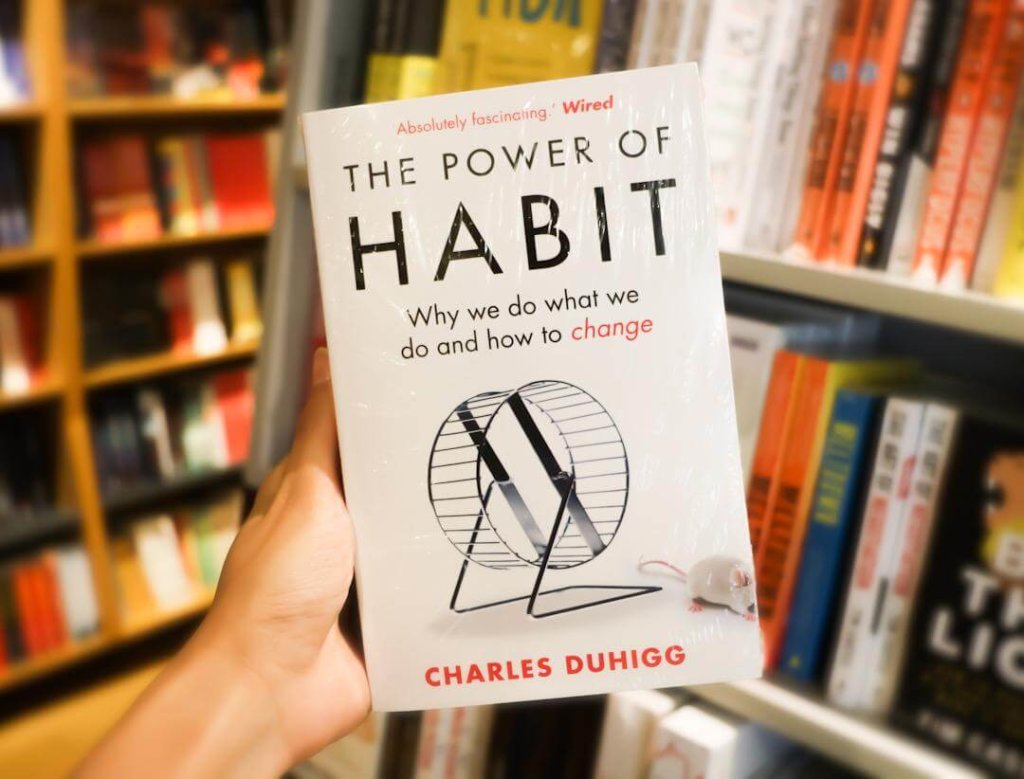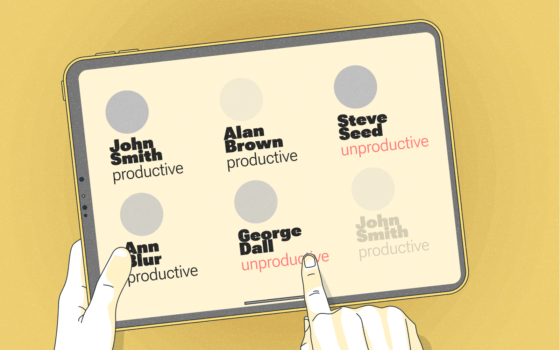X Habits of Successful People

At some point, we look up at Oprah Winfrey or Elon Musk and we ask ourselves, how do they do it? How do they manage to build that level of success? Is it their natural talent, or is it something that they learn along the way? Most people would say that success is a combination of both.
And while there are many habits of successful people that you could focus on, we have narrowed it down to the most important ones. In this blog post, we will discuss these habits and how you can implement them in your life!

Success doesn’t look the same for everyone, for some people success may be financial, while others may find success in their relationships. But the habits that lead to these successes are usually the same. Discipline and constancy, eh?
However, habits are not set overnight, they are developed through practice and consistency. Even, the inadequate habits that take us away from our goals are a result of a repeated pattern over time. How do we shape habits?
The 3 R’s of Habit Formation
According to behavioral psychologists, habits are formed through a process of repetition, reinforcement, and reward. This means that we need to do something multiple times (repetition), be rewarded for it (reinforcement), and then continue to do it because of the reward we have received (reward).
This is the process that we know as the 3 R’s of habit formation: reminder, routine, and reward. This loop was popularized by James Clear, the author of Atomic Habits, a book we recommended in our list of must-read books for business owners & entrepreneurs, which you can read here.

Unlock the potential of your habits with this visual based on Charles Duhigg’s “Habit Loop” from his renowned book, The Power of Habit. Brought to you by James Clear as an aid for better understanding and self-improvement!

Setting a Reminder
To create habits that stick, you must have a reminder of why you are doing something. A reminder serves as the first step in habit formation. It is a cue that jumps and starts the habit loop by inducing an urge or prompting to start executing a sequence or behavior that has been previously established for a certain purpose.
A key factor in this process is the reminder stage, which serves as a trigger for us to begin our habits
The reminder can take many forms, such as putting up post-it notes or setting notifications on your phone or laptop. Reminders can come in any form, especially one that makes you feel comfortable and you won’t miss it. First, all habits require reminders!
Developing a Routine
When we want to create new habits, it’s essential to develop a consistent routine until it becomes an automated response – something that just comes naturally without requiring any thought or extra effort from us. The secret is setting up a consistent effortless pattern of activity.
We must ensure that our habits are small, and actionable, and work towards a long-term goal. Breaking outdated habits while introducing new habits can reap serious benefits when done strategically. An effective habit-building strategy should take our time constraints and resources into account to fit the needs of our individual routines!
Fostering a Reward
Once we have established our habits, we must reward ourselves for completing them. Rewarding yourself will help you stick to your habits while staying motivated to keep working on the routine for this new habit.
For habits of success, the reward you receive could be something as simple as a feeling of accomplishment, or it could be something more tangible like recognition from your colleagues or a monetary reward. Regardless of the reward, it allows us to stay motivated and eventually become successful.
How Do Habits Shape the Success of a Person?
Truly successful people can develop habits that set them apart from the rest. They give the extra in the extraordinary. These habits allow them to focus on their goals, prioritize what is important, and keep the discipline, focus, and consistency that they rely on to stay motivated and achieve their goals.
In fact, according to the philosopher Will Durant: “We are what we repeatedly do. Excellence, then, is not an act, but a habit.”

By creating healthy habits, we can:
Develop a Strong Work Ethic
When we habituate certain behaviors, we create a successful cycle for ourselves. For example, if we habitually start projects on time and then use our time wisely, it increases our ability to produce quality work that produces rewards.
Habits also make us more efficient; the more efficiently we are working the better results we get in less time. Thus, habit formation allows us to develop a strong work ethic and create success while reducing stress and wasted energy – this leads to greater satisfaction with our accomplishments at work.
Build Better Work Relationships
Habits allow us to show consistency and reliability in our relationships. This can help build trust with co-workers and clients, which is essential for successful collaboration.
And habits also help us to build better habits within ourselves, like staying organized and managing our time efficiently. This ensures that we are meeting deadlines and that we are not forgetting important tasks.
By developing habits, we can increase our overall productivity and create better relationships with our team, leading to greater success.
Achieve Goals Faster
Habits are an important part of habit formation and success. When we can form habits over time or even that last habit we need to achieve a goal, it helps us move forward faster. Habits help us save time, effort, and energy because once they are in place doing the right things will come almost automatically.
It makes achieving goals faster and much easier as most of our action steps have been taken care of and habituation to them leaves us to just complete minor details at the end. As a result, this leads to simpler paths which in turn lead to quicker results.
Build Confidence
Habits – those repeated activities that eventually become second nature – not only help us be more efficient but also give us a sense of mastery and accomplishment. This sense of achievement boosts our confidence in our ability to succeed, allowing us to take on more challenging activities with increased optimism and self-awareness.
Once we have a habit in place, this brings about routine and familiarity which further help instill trust in ourselves that we can achieve anything if we keep trying. Moreover, habit formation can open up new doors for growth and opportunity as each habit is a small step towards success, increasing comfort levels with uncertain scenarios.
Take Calculated Risks
With this confidence, comes the strength to excel in our work and take calculated risks to further our careers. Habits allow us to be creative and innovative and think outside the box without fear of standing up and embracing new responsibilities.
By forming habit patterns in our lives, not only are we creating a framework to measure success but also cultivating confidence in our ability to make decisions despite potential setbacks.
Exercise Habits of Self-Care
Habits help us to get rid of that constant state of being busy, therefore habits are a powerful tool for achieving success and taking care of our physical and mental health. By having habits in place that help us manage our daily tasks, we create large amounts of extra time to focus on the things that truly matter, such as investing in creative endeavors, spending quality time with family, or making sure we get regular physical exercise.
Through habit formation, we can save ourselves a great deal of stress and make sure that self-care remains a priority. Having habits in place gives us the freedom to reach our goals and find balance in our lives.
Now, let’s get into the very topic! What are those habits that make successful people successful? Stay with us, we have the list for you!
The Habits of Highly Effective People: What You Can Learn from the Successful
Successful people have habits that they practice every day, habits that have helped them to reach their goals. Here are some habits of highly successful people that you can learn and adopt in your own life:
No Alarm, No Problem
Can you wake up without an alarm? Probably not. Research found that 80% of the working population uses alarm clocks on workdays.
However, a lot of successful people like Jeff Bezos and Oprah Winfrey ditched their alarm clocks, and wake up naturally every day.
How? By getting enough sleep! If you feel the need to hit the snooze button, you are probably chronically tired. Scientists at Notre Dame University in the U.S. have discovered that those who rely on an alarm clock to wake up are significantly more exhausted than natural early risers.
Yet, this is not about just going to bed early. Elon Musk is quite successful and goes to bed around 1 AM and wakes up around 7 AM. This is about you finding the amount of sleep you need to be productive the next day.
Plan Your Day Ahead
As a night owl, Barack Obama is known for staying up late preparing for the next day ahead and used to get to bed around 2 AM when he was the President of the United States. This habit can be really useful to create shortcuts to get things done.
Deciding what tasks need to be completed in advance and allocating the necessary resources will help make sure everything gets done effectively and on time. Furthermore, when everything has a set place, it’s easier to find the motivation and energy needed to move forward in an organized, productive manner regardless of what comes up during the day.
Stay Teachable
On repeated occasions, Bill Gates has affirmed he reads a lot. And when we say it’s a lot: he reads around 50 books a year. He regularly invests time in reading and learning new skills that have certainly led him to become one of the most successful people in history.

This is a way of saying “I am open to learning new stuff every day.” Developing a habit of reading regularly is one way to ensure that you stay open and receptive to new ideas and information – it helps to keep your skills sharp, eliminates the risk of stagnation, and expands your horizons.
Additionally, if you select books or articles that provide insight into areas of your interests for growth or development, you can further hone your skills and progress toward success.
Be Willing to Take Risks
Who’s out there being successful and not taking risks in the process? No one. Taking risks requires you to get out of your comfort zone and push yourself.
Mark Cuban is a perfect example of a successful risk-taker. He risked his entire life savings to start a business, which eventually earned him a billionaire title.
“In a world that’s changing really quickly, the only strategy that is guaranteed to fail is not taking risks.” Elon Musk
Risk-taking is not only about investing money. It can also be about taking a stand, introducing new ideas, or pushing yourself to reach goals that are outside your comfort zone.
Rejection is an Opportunity in Disguise
After growing up with a lot of difficulties, Shark Tank’s Barbara Cocoran has experienced a fair share of rejections, and in fact, a love rejection was the event that ultimately led her to become a multimillionaire. Or as Mark Cuban said: “Every no gets me closer to a yes.”
Rejection is not always a bad thing; it’s just part of the process that leads to success. It allows you to go back and rethink your strategy, and come up with a better solution. When facing rejection, highly successful people apply a growth mindset. They view setbacks as opportunities to learn and grow, rather than as the end of the road.
Takeaway
We often think successful people are some kind of alien geniuses, while in truth they are just real people putting in a lot of discipline to achieve their goals. By applying the habits of highly successful people, you can lay a great foundation for achieving success in your own life. Get enough sleep, plan your day ahead, stay teachable, and be willing to take risks. A no can be a miracle in the happening!
These habits will help you to become the powerful and successful person that you have always dreamed of being. Good luck on your journey to success! If you’re looking for additional resources on personal and work development, check out our blog for more helpful tips.
-The Monitask Team


